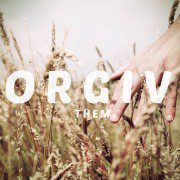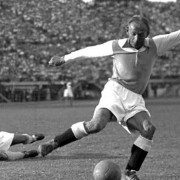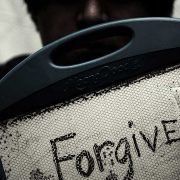Why Is It So Hard to Go Back to Church After Getting Hurt?
Written by Sara Koh, Singapore
Growing up, I had always wondered why those who have left church found it hard to come back. I knew these people usually left because of some hurt or disappointment that they’d experienced. But as a child, I thought that since the church is called to show compassion and to be inclusive, that would’ve made it easier for these “prodigal children” to come back home.
I never imagined that I would have to figure out the answer to that myself—after a particularly hurtful experience made me leave the church.
The first time I attempted to go back to church, it was awkward. It was the same church I had left, and I found it hard to walk through the doors and into the sanctuary, to raise my hands during worship, to not let cynicism drown out the speakers’ voices. The weight I felt in my chest made it hard for me to experience Jesus as I had before.
I saw old friends, mustered pained smiles, said respectful hellos to some of the elders . . . but it just didn’t feel the same.
The second the service ended, I bolted. That’s when I realised why it’s hard to come back to church: When the pain has not been dealt with and those involved are unaware of the hurt they’ve caused, walking back into church feels like stepping on hot coals.
I felt robbed of the joy I once had. So I told myself I’ll never go back again.
Fast forward to three years later—after experiencing a whole lot of growing, escaping, and confronting in my life outside of church—I finally made my second attempt at coming back, but in a different church.
This time I felt adequately weathered; by God’s grace, I felt that I had gained maturity. I had tempered my expectations, and I felt bolstered by steady and safe friendships.
It still felt awkward, but this time I didn’t find it hard to raise my hands, to sing, or to pray. I found it easy to listen to the emcee and the preacher.
Looking back at the last four months, I feel a deep sense of redemption, humility, and gratitude. Even though the work of healing has just begun—I still get triggered when I hear certain names, and I still struggle with the indignance of the entire experience—I’m choosing to place the entire process in God’s hands.
During my three years outside church—what I call my wandering-in-the-desert period—I’ve picked up a few things that made it easier for me to go back to church the second time.
One: Hurt exists in and out of the Church.
Thinking that being in church means we’re free from hurt or offence is not realistic. Whether we’re in church or outside, we need to accept that we can never be totally immune to the negativity and pain of this world. And so, it’s necessary for us to grow in our perspectives and deepen our relationship with God to help us deal with these hurts in healthier ways.
As Christians, we’re privileged to have guidelines laid out for us when it comes to relating to one another. We also know that when we’re inflicted by hurt, we can take refuge in God (Psalm 18:2) and that our suffering can produce good things even if they don’t feel that way in the moment (Romans 5:3-5). The Bible shows us there are ways to lament (just look at Psalms!) and reconcile (Matthew 18:15-17), so that we don’t let our pain fester and infect our souls.
But still, as my experience has taught me, it was much harder to live these truths out in my life than I realised.
Two: There is a higher calling for us to show mercy and forgiveness to those who have hurt us.
A lot of Christians, after leaving the church, will say: “Some of my non-Christian friends treat me better than those in church”. And while that may be true, what is also true is that Jesus never promised us that we would be treated otherwise.
What Jesus did make clear is that if we don’t forgive those who hurt us, we ourselves will not be forgiven (Matthew 6:15). These words strike a deep, reverent fear in me, and helped me start to consider forgiving those who have hurt me.
Choosing to forgive means that I can stop building a mountain out of the things I’ve swept under the rug. It also means that I can experience freedom, as long as I keep running to Jesus each time the hurt swells.
Three: We have a perfect God, but we can’t expect people in church to be perfect.
One thing that contributed to the hurt I experienced was my own immaturity in dealing with relationships. I was longing for community more than I was longing to commune with Jesus, and I had placed friendships on a pedestal.
I also expected my church leaders to conduct themselves in a certain way. And when I saw them behaving in the opposite manner, or in ways I found disappointing, I didn’t know how to deal with the weight of disillusionment and the hypocrisy I witnessed.
When I came to realise that everyone is dealing with their own set of baggage and struggling to map out their identities, and how our journeys toward healing could sometimes cause collateral damage to others—helped me make sense of my hurt a bit more.
Four: Healing requires time—and it’s not linear.
Healing rarely happens in a linear or structured form. Some days we feel like we’ve finally conquered the nasty feelings of resentment because we can speak about the situation without anger. But other days we feel like we’re back at square one, when something seemingly trivial triggers those unwanted feelings again.
Picturing the healing journey as a meandering river can be helpful, instead of expecting it to be a straight line with a clear start and finish. The hope we have is that as we sail through it, Jesus will give us what we need for each day—the same way God provided the Israelites enough manna every day, instead of giving 40 years of food supply all in one go.
What Healing Looked Like for Me
Healing for me looked like giving myself time—time to not obsess over how it went wrong, what the other person did wrong, and what I should’ve done. Some days it looked like escapism and distraction (which I do not recommend!), but there were also days when I got to contemplate and re-examine my own worldviews about people in and out of the church. I came to understand better how people outside of church choose to live their lives and why they feel a certain way about Christianity. I also realised that many who grew up in church tend to be very sheltered and detached from the real pains of the very people we’re called to witness to.
Healing also looked like allowing myself space—distance from where I encountered the hurt, to be away from the physical reminders of my anger and disappointment.
Beyond time and space, my healing journey involved many sporadic conversations with God. I quietly wondered in my heart why God had allowed it to happen, when all I was looking for was community. How did a desire for a “godly” thing end up becoming such a hurtful experience? I didn’t understand it.
While I did not consistently set aside time to pray, I believe God, in His grace, met me where I was. In those conversations I’d have with Him, along with a few trusted people, I was given space to doubt, and because of that, I had room to process and heal.
Healing also took the form of the tugging and desire in my heart to move towards healing. Although there were moments when I did get used to having the hurt and unforgiveness around, God continued to knock at my door, speaking to me through the persistent little nudges in my heart—stray thoughts of “I really should go back to church”, “I really should deal with all this hurt properly, before I become someone I can’t recognise”.
Somewhere within me was a desire for freedom and for joy to return in my life. I didn’t want my heart to become ugly with bitterness, or dark with resentment.
Even as I type out these words, my heart feels tender and overwhelmed with emotion. I thank God that He allowed me to walk out this identity-shaking time in my life, with the ability and freedom to question, to doubt and lament, and having the grace of friendship and love shown to me even when I wasn’t the best person to be around.
If you’re hurting today and finding it impossible to come back to church, can I say that I understand—and more importantly, that Jesus understands you fully? No one is expecting you to come back suddenly whole and happy.
But Jesus is calling you to take just the first step towards Him, and to allow healing to happen in His time. It may not make much sense in the moment, but if you keep turning towards Jesus, there will come a time where you’ll see it with so much clarity: That Jesus and our relationship with Him is the ultimate prize.
So come home, my friend. Jesus is waiting.













So blessed with these words! Thank you!
Thank You! It is helpful and blessed me much!
Thank you for your vulnerability and encouraging words! I can’t begin to explain how so much of your experience is resonating with my current season. Church-hurt support group when?
I tried going back last Sunday
It’s close to Christmas 2021
But it’s just not good feeling.
Imma just let it go
I don’t wanna deal with those people anymore
They are evil
JESUS is the reason for the season not church people